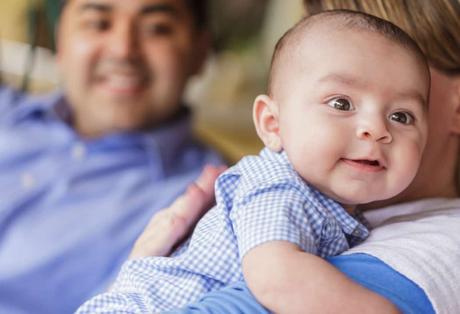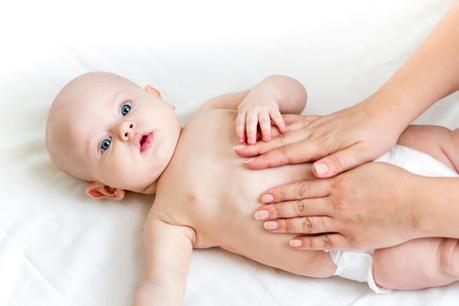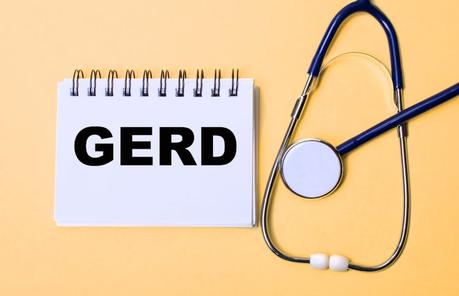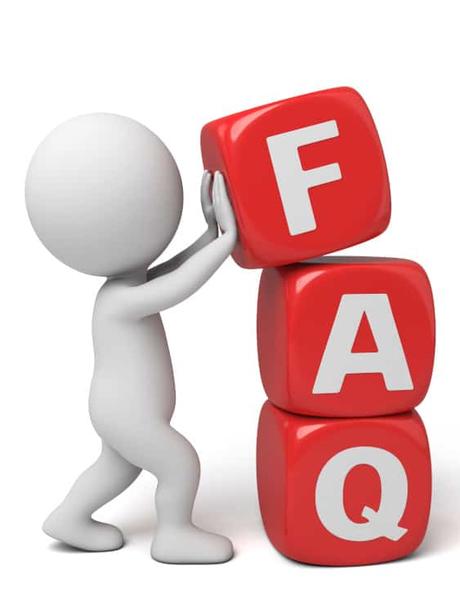Before you become a parent, it’s hard to imagine the amount of thought and work you’ll spend burping your baby.
Then, once it’s finally born, you start wondering whether you should burp your newborn as it’s laid down or held straight.
If you’re reading this post, you’re more so concerned about why your baby cries and screams when being burped. Do not be alarmed; your baby is fine!
In this post, we cover everything you need to know about baby burping, from why it has to be done to why some babies tend to scream when being burped, so stick around.
Why Should You Burp Your Baby?

As your baby feeds, be it breastfeeding or bottle-feeding, they swallow air unintentionally. This air can cause colic, bloating, gas, abdominal pain, or even exacerbate acid reflux.
You might be thinking that your baby hates being burped because of all the screaming, but it’s not true.
Your little bundle of joy screams when being burped because of the discomfort it’s feeling from swallowing air, not from your gentle patting.
Burping helps expel the excess air in their upper digestive tract, relieving your baby’s distress.
How to Keep Your Baby From Screaming When Being Burped?
We recommend stopping mid-feed to burp your baby. If you wait until your baby is full, releasing all the trapped air at once could be a source of discomfort.
Note, however, that can sometimes be counterproductive. When you stop mid-feed, your baby might start screaming and crying because it’s still hungry and wants the feeding to continue. In this case, you should just let them finish.
The thing is, when babies cry and scream, it causes pressure to build up inside their abdomen because it makes them swallow more air. So, how can you decrease the air intake? Read on.
How to Decrease Air Intake?

The speed of feeding can result in more air intake. Try to feed your baby before they throw a fit from hunger. A slow feed will help reduce air swallows.
Also, if you’re going through a forceful let-down, you might want to lay down so that your milk slows down with the force of gravity. Moreover, make sure your baby’s hold on your breast is steady and sealed.
Bottlefeeding can be a tad more challenging, resulting in more air bubbles. The trick is to always have the bottle teat full of milk, otherwise, your baby is sucking on air. Tilting the bottle to a good 30 or 40 degrees is always a good idea.
You will also find bottles with disposable liners very convenient. The collapsible liners resemble breasts, allowing for proper latching. They make it incredibly hard for air bubbles to go with the milk flow.
Lastly, make sure the nipple opening of the bottle isn’t too big or too small. That can make your baby suck harder, and swallow more air.
How to Burp a Baby That Is Hard to Burp?
Have you been at it, patting your baby for a while, yet your baby seems to be fighting the burp? If it’s just one of those days, here are some of the positions and tips that have been put to trial and kept us sane a time too many!
When patting your baby’s back doesn’t cut it, you might want to start rubbing it from top to bottom.
The gentle massaging or swinging can soothe your baby and help them let go of the uneasiness. It’s also a good way to avoid baby screams when being burped.
If that doesn’t work, go for some patting, with a little pressure, on your baby’s bottom. You can also, very gently, start bouncing them on your lap. That’s a little risky because you don’t want all the food coming up, but it’s worth a try.
Another favorite method is laying your baby down on a bed and moving their legs back and forth in a bike pedaling motion.
Don’t forget to give them some belly rubs, too. This can actually help them pass wind. Whichever way the gas is released, we’re not complaining!
The number one position you should always try is the baby’s head over your shoulder. This way the baby is upright and you can walk around with them.
Still not burping? See if sitting your baby down on your lap will work. Place their back to your front, and slightly incline their body away from you. Support their body with a hand flat at their chest area, and pat their back.
Lastly, you can try to have your baby lie face down across your lap with its head in an elevated position looking sideways. This will help prevent your baby from choking on spit or vomit.
You’ll also want to look out for the throat area. Make sure you don’t apply any pressure while supporting the head.
Try each position for 10 minutes or so before attempting another. And, place a protective bib or a towel close to your baby’s mouth.
It’s worth noting that if your baby doesn’t show any signs of discomfort and hasn’t burped then you don’t have to trouble yourself for long. Your baby might not need to burp.
What Is GERD?

GERD is short for gastroesophageal reflux disease. It’s pretty common in babies. If your baby screams when being burped, it could be a sign of GERD. It’s also worth pointing out GERD will have your baby frequently throwing up, and gagging.
The reason for this is simple: the food goes back on its tracks instead of settling in your baby’s stomach.
That’s because babies’ lower esophageal sphincter muscles are still not mature. The purpose of these muscles is to help the food go from the esophagus to the stomach.
Since these muscles are still not developed enough in a baby, they sometimes allow the food to go, unpleasantly, back up.
Best Way to Burp a Baby with Acid Reflux
If your baby has acid reflux and it’s constantly screaming, you must avoid your baby in a sitting position. This only makes acid reflux worse. Don’t feel mom guilt if you did it before, though; it’s a trial and error kind of process.
The right way is to hold your newborn upright over your shoulder for half an hour after every feeding. Make sure to put a small towel on your shoulder to avoid any unfortunate wet burps.
You should do that after every 1 or 2 ounces of feeding. If you’re breastfeeding, burp your baby every time you change breasts, as a rule of thumb.
Make sure you’re not overfeeding your baby. Keep an eye out for cues of being full such as pushing the bottle away or moving their heads back.
If acid reflux is a repetitive issue, consider feeding your baby fewer portions, several times a day.
Why Can’t Babies Burp on Their Own?
Again, the esophageal sphincter muscles aren’t doing their job right. And for that, you have to deal with all the baby screams when being burped.
Instead of relaxing to let the gas bubbles go up and out of your baby’s body, the sphincter muscles remain bolted. The bubbles then float around in the intestines, causing tummy aches.
How to Burp a Sleeping Baby?
A baby can fall fast asleep with the tip of the milk bottle still in its mouth. This leaves you with the struggle of burping them without disturbing their sleep.
We recommend cuddling their curled-up body to your chest for a burp. The softness of your abdomen and the heat of your body will be comfortable enough for the baby to stay in dreamland.
If they stir, try circular rubs or soft pats between their shoulders to lull them back to sleep.
Why do Babies Arch Their Back While Burping?
It’s not just the fact that the baby screams when being burped that concerns a lot of parents; many worry about their babies arching their back, too.
As you already know by now, burps, gassiness, acid reflux, and colic all come hand in hand. Back arching helps stretch the stomach a bit, which, in turn, helps settle the stomach, bring down the acid, and relieve colic pain.
Brief Guide to Soothing a Baby with Colic
Colic is basically fussiness and intense crying sessions. They are common in babies from age six weeks to about four months. They’re usually a result of trouble with feeding, digestion, and burping. We know how overwhelming it can be, so here are some tips to put you on track.
White noise can work magic! It calms the most restless baby by creating a blanket of sound with a similar effect to a mom’s womb. It’ll make your baby sleep faster, and much deeper.
Another technique that never disappoints is a warm shower followed by a massage. You deserve one, too, as a parent. So, make yourself and your baby a brief spa session for a peaceful sleep. Don’t forget to snuggle your baby in a swaddle for extra calmness.
Continuous movement can also do your colic baby good. Carry your baby in a sling and walk around with them, or put them in a rocking seat.
You may want to give changing your diet a shot. Although it’s improbable that it’s the reason for colic, try to cut down on dairy products and caffeine. Then, keep an eye out for improvements.
Your doctor might also prescribe simethicone drops, which help break down gas bubbles in your baby’s stomach, relieving them of the pain. Alternatively, they could prescribe lactose drops that break down lactose for your baby to help with bloating.
When to Stop Burping a Baby?
When you’re fretting about why your baby screams when being burped, it’s always a relief to remember that this won’t last. In the blink of an eye, your tiny bundle of joy will grow out of the manual burping phase.
A baby can learn to burp without your help from the age of four months to nine months. We know the time frame is a bit wide, but it really depends on each baby. Your baby’s cues can indicate when they’re ready.
Moving, sitting up on their own, and eating solid food are all signs that your baby will soon laugh at their own burps. Being in control of their body, they can get into comfortable positions to work the air bubbles out of their body.
And eating solid food means their stomach is no longer super sensitive. Once they have better digestion, they’ll get fewer gases.
Baby Screams When Being Burped? FAQs

Now that you know why your baby screams when being burped, let’s address some questions that go throw all of our heads.
Do I still have to burp my baby if they fart?
Yes!
Flatulence is the release of gases at the end of the digestive tract. These gases are a result of the breaking down of the food in the intestine.
Note, however, the gases that are aggravating your baby are those they swallow while feeding, which take up space in their stomach.
Both are important body functions for the comfort and wellness of your baby.
Is a baby burp a sign of fullness?
Burping is not specifically a sign of fullness. In actuality, with the release of air from your baby’s stomach, there’s probably more room for food. So, your baby can burp mid-feed and still go on to have more milk.
That said, a wet burp can generally mean satiation. Hiccups, too, are believed to be a sign of a full stomach.
Wrap Up
Having gas bubbles trapped in your baby’s tummy sure isn’t fun. Colic and acid reflux can make feeding time seem unpleasant.
Once you learn about all the different burping positions and tips you can use, you end up getting the hang of the whole baby burping process.
You get to know how to keep the reflux down and how you can burp your bundle of joy without interrupting nap time. With all the tips mentioned in this post, you may even become the parent who never fails to make them burp!
